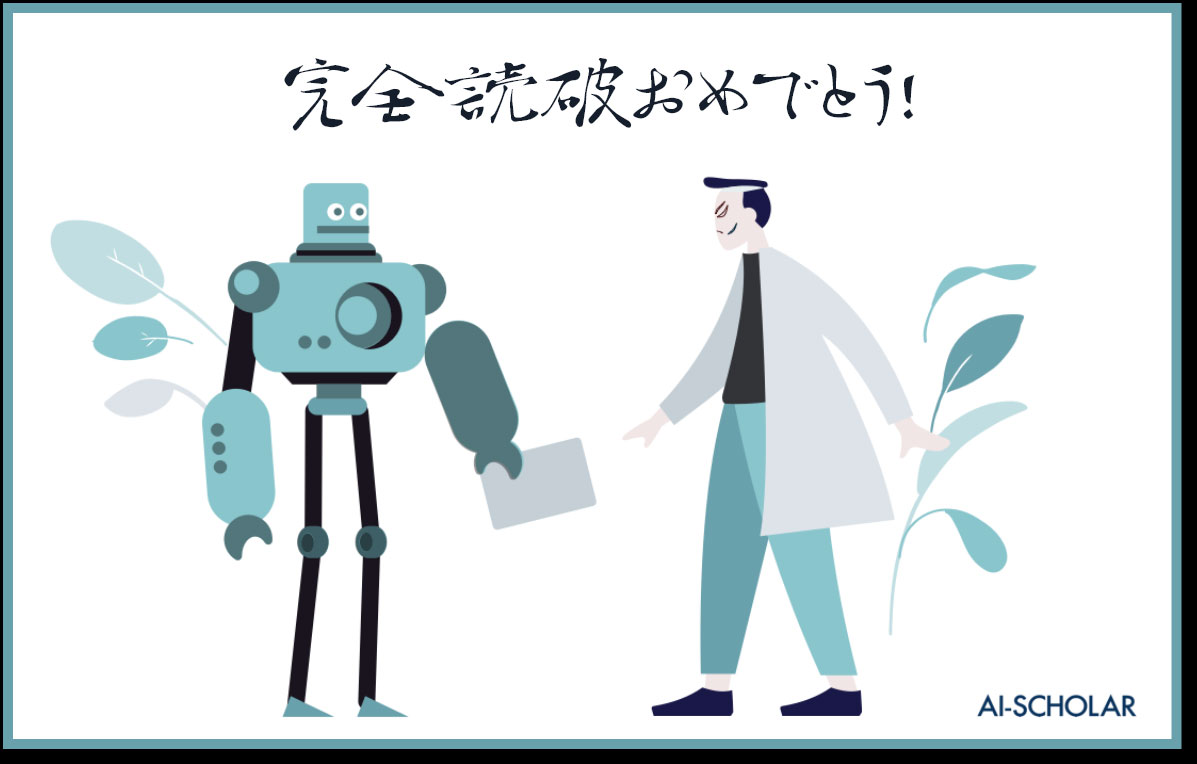If You're Gonna Mess With The AI...
1. mathematics
The math It is. Yes, it is, after all, mathematics. What is math? It's tempting to play dumb, but machine learning and data analysis, which form the basis of AI, are all based on the handling of numbers, and how to decipher and utilize them is all based on mathematics.
When you hear the term "artificial intelligence," you might think that it's a machine replicating the human brain, but that's a big mistake: AI technology uses rigorous mathematical calculations to find the most accurate way to predict the trends in the data. The reality is that its predictive performance is as accurate as a human would think.
In other words, artificial intelligence is a machine made to look like a human being thinks.
Therefore, knowing how AI thinks is just a matter of knowing how it works mathematically.
Of course, it's not generally true that if you can only do the math, that's enough to make you an AI engineer or data scientist. And if you're asking whether being able to do math will increase your income, that's doubtful.
But for AI engineers and data scientists, mathematics is "basic fitness." There will be an ever-increasing demand for high-level AI engineers who can read papers in various forms and find ways to improve models based on formulas. (You could say it's already pretty high...)
In addition, tasks involved in data analysis will also require a mathematical background and understanding of how to treat the data as a model, leaving it to AI to produce features and trends from the data. Now, then, what should I study?
First of all, if you want to become a "proper" AI engineer or data scientist, you need to have a first or second year of college liberal arts math (but it's not easy), which is based on the mathematics you learned in high school. It's not easy, though.
Specifically. Calculus, linear algebra, and basic statistics, plus set topology and Bayesian theory These would be applicable. Among other things, I would imagine that knowledge of statistics is essential for top-level AI engineering and data analysis, and in order to have a solid understanding of them, peripheral knowledge of calculus, linear algebra, set topology, etc. is required.
Mathematical skills may seem inefficient at first glance because they are hard to appreciate and the more you study, the farther and harder the path is to get there. However, now that AI has become available for business use, you want to work with it in the future! If you think that you want to work in this field in the future, I suggest you start studying it diligently now. Although I emphasized that it is not easy, I think that liberal arts mathematics as a system of study is very sophisticated, deep, and interesting (depending on the person).
The more solid AI engineers and data scientists are, the more they understand the importance of that math.
2. programming
Now that we know that mathematics is responsible for AI's thinking, we have to perform calculations based on that mathematics. What happens if we do the calculation with a pen and paper? If you repeat the calculation on thousands of data one by one, the day will come to an end. Not only does this mean the end of the day, it means the end of your life. That's where programming comes in.
Mathematical skills are very important for learning each analytical method and the theoretical system of AI, and it helps to deepen our understanding of it. But it is the programming that shapes it. Computers are obviously better at handling large amounts of data accurately and repeating the same calculations tens of thousands of times. If it's a simple one. Excel may be enough, but the more advanced you are, the more you need to program.
Also, unless you are very well suited for it, minimal AI/data analysis is very easy to handle in modern programming languages. So many people would say that it is highly time-effective.
For example, programming languages such as "Python" and "R" are now often used for data-related tasks, and many books are published to study the production of machine learning based on these languages. The knowledge of 1. ~ 3. presented in this article is a matter of priority for each person, but in fact, it may be that this programming is the one that "can be started by one person", "its hurdles are low".
In addition, in order to make AI as convenient as possible, there are now applications such as "Anaconda" and "Tensor flow", which are equipped with various libraries (necessary programs are pre-built and made available for anyone to use).
In order to keep up with future technology, not just AI, why not try it out and try learning "Python" from scratch?
3. knowledge of the industry to which AI is applied
Many of the readers of this content may be rather knowledgeable in this field.
Surprisingly, I hear engineers say that even if they have 1. math and 2. programming skills, they are not very good at applying them to business or catching up with the business side of things and that it is difficult. Also, I think there are some things that only the people in the field can understand. However, in the case of data analysis using AI, for example, no matter how accurate the analysis is, it can lead to concrete improvements and results, such as increased sales and operational efficiency. If you don't connect with them, it's impossible to say that they are meaningful.
Business knowledge (domain knowledge) is "What is the purpose of AI?", "Why do we need it?", "What are the possible hypotheses and approaches? "This leads to solving essential challenges in the business," he said. As a job title, we are leaking AI created by engineers to the right industry This course is ideal for AI directors and IT consultants, who are responsible for planning strategies by listening to what kind of AI is needed.
Specifically, marketing knowledge, how to read financial statements, etc., are too diverse to be generalized depending on the type of job you are involved in. In addition to knowledge, you will also need business skills such as the ability to think and propose hypotheses for finding issues in the field, and the ability to interpret numerical results and communicate them to others. (If anything, these may be very important.)
It may seem obvious, but by taking this knowledge into account, you will be able to make a greater contribution and more useful use of AI.
summary
In this article, we've taken a slightly different perspective and looked at the body of knowledge required for an "AI engineer and data scientist" from three different perspectives.
However, it's not easy to find someone who has complete mastery of all the math, programming, and business. Also, there is a wide range of knowledge and background that can be used in AI business and data analysis work. It's a good idea to start with what you can do.
I don't know anything about math or programming, but I'd love to try out some basic AI concepts! If this is the case, please read this content carefully to the end.
When you're done reading, press the button.
Let's track our learning progress!




